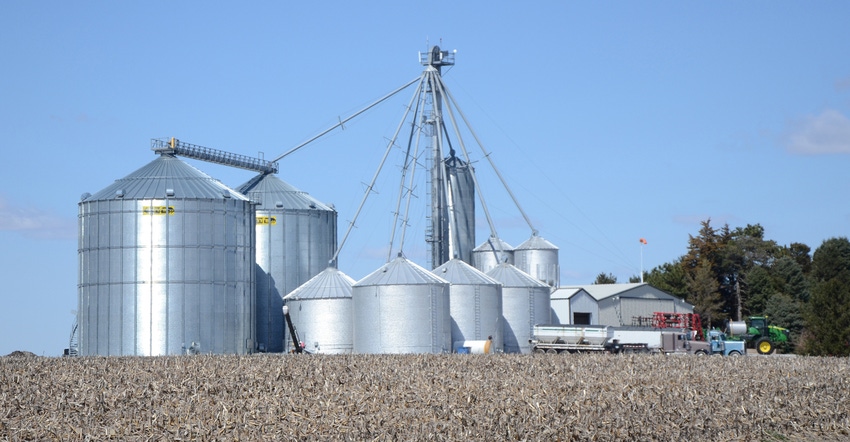January 22, 2021

As we look back on the events of 2020, including COVID-19 and its multiple impacts, the derecho, and recent political developments, one can conclude that in agriculture one thing is certain and that is uncertainty. Uncertainty and unpredictability in our political climate is nothing new. Farming can be a risky business, and farmers have been dealing with risk issues for years. Understanding that risk and not letting it interfere in our long-term goals is key to achieving successful farm operations, and estate or succession plans.
The winter months are a good time to engage in planning, and it is still a good time, despite political changes. In this column, I want to focus on how to positively deal with political uncertainty.
Uncertainty forces us to plan and to revisit that plan often, at least every few years. Farm families are used to adjusting their plan; they do it on a daily basis. Farmers have adjusted to newly introduced or modified farm programs, crop insurance industry changes, tax law changes, and disaster events all in the span of the last few years.
Understanding that the political climate is ever-changing, farmers must focus on the areas that do not change. For most families, the over-arching goal does not change, and that is to keep the farm operating and transitioning the farm operation into the next generation if possible.
Tax changes overwhelm many
One of the common reasons I hear in my practice for not planning is that potential federal estate tax changes make it complicated and overwhelming to plan. As we all know, there has been talk of tax changes down the road with the new administration. Some politicians have discussed lowering the federal estate tax and gift tax exemption. Some have discussed potentially doing away with ability to take a step-up in basis on real property upon death.
Additionally, there is a possibility that nothing will happen and the current federal estate tax exemptions and rates will sunset at the end of 2025, resulting in a lower exemption amount to pass at death or during life. In any event, it is hard to plan when the outcome is unclear, and it is understandable that, in an era of high farmland values, this uncertainty can cause anxiety.
Make a flexible plan
My advice is to not let a short-term tax decision interfere with a long-term plan that should include, succession planning with on-farm and off-farm heirs, retirement planning, and thoughtful farm program planning. The key is to develop a plan that is easier to modify over time and is flexible enough to weather the storm of political instability.
Remember, there are still tax tools in place to deal with federal estate tax exposure. In the past, many estate planners have utilized valuation discounting techniques through the use of family-owned businesses or through the use of special-use valuation to reduce the value of the estate for purposes of the calculation of amounts due for federal estate and gift taxes.
If you remember, special-use valuation allows for a valuation discount for deaths where there is a qualified family farm owned by the decedent. (Farm families must satisfy pre-death and post-death "tests" or requirements to qualify.) Essentially, the purpose of special use is to allow farmland to be valued as its "productive use," rather than its fair market value or "highest and best use" for purposes of calculating estate and gift taxes.
In any event, a periodic review of your farm estate plan is always a good idea. Even if you aren't concerned about tax issues, families and farms grow and change over the years, and it is a good idea to stay on top of the latest estate planning techniques to ensure a successful transition of the farm to the next generation.
Remember, you are not alone. Succession planning is a process that evolves over the years, and there are no family farm operations that are immune from it. Rest assured there are many resources and advisers out there who can help facilitate this process. A good adviser will stay on top of those changes, and let you know when those changes might impact your operation.
Early bills highlight focus on rural issues
The Iowa Legislature kicked off the 2021 session Jan. 11, and a variety of issues are already being discussed and debated that have the potential to impact agriculture in our state.
At the beginning of the session, several bills were introduced that may indicate the path the Legislature will take. Bills related to and impacting animal confinement operations, inheritance taxes, hemp regulations, pesticide regulations, farm licenses for younger drivers, expanded access to childcare and broadband access in the state are just a few of the bills that have been introduced.
It should be noted that some similar bills were introduced last session that did not survive the legislative funnel deadlines. We will follow up on these important issues in-depth in next month's column as information becomes available and following the funnel.
Herbold-Swalwell is an attorney with Brick-Gentry in Des Moines, Iowa. Email [email protected].
Read more about:
TaxesAbout the Author(s)
You May Also Like






